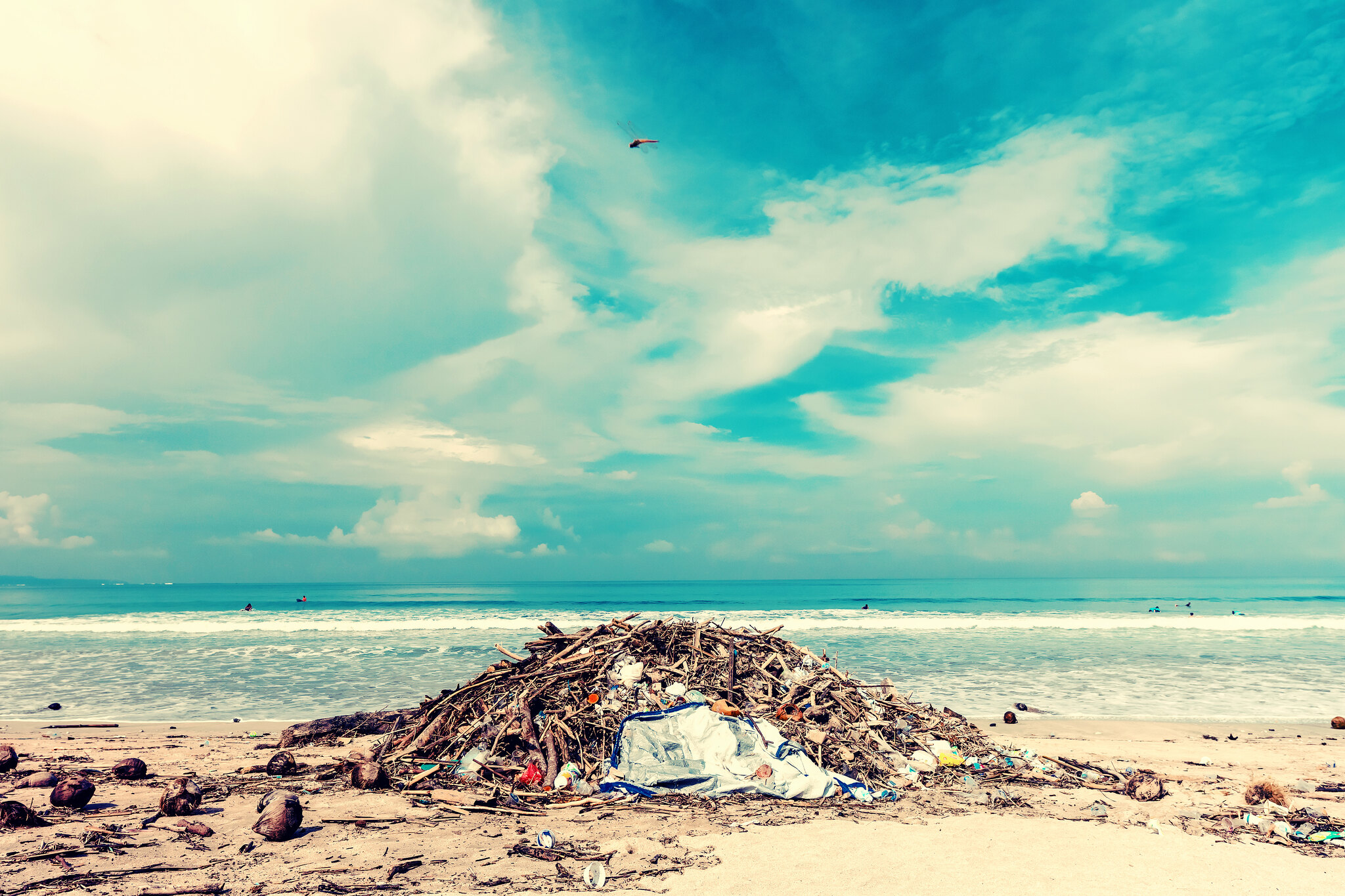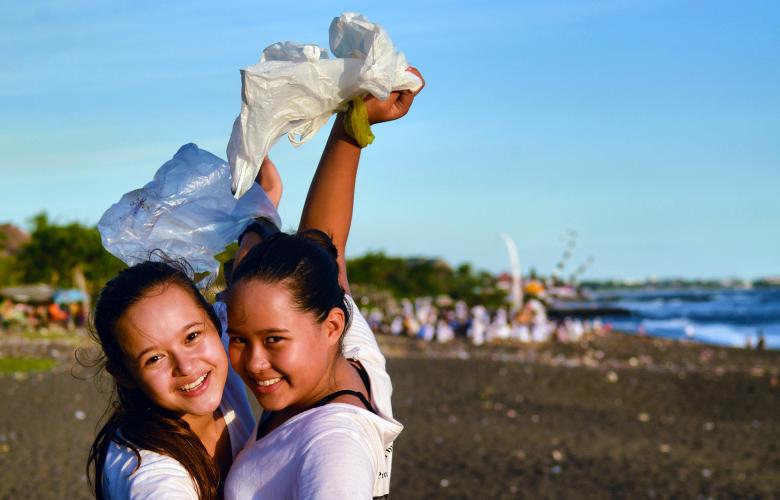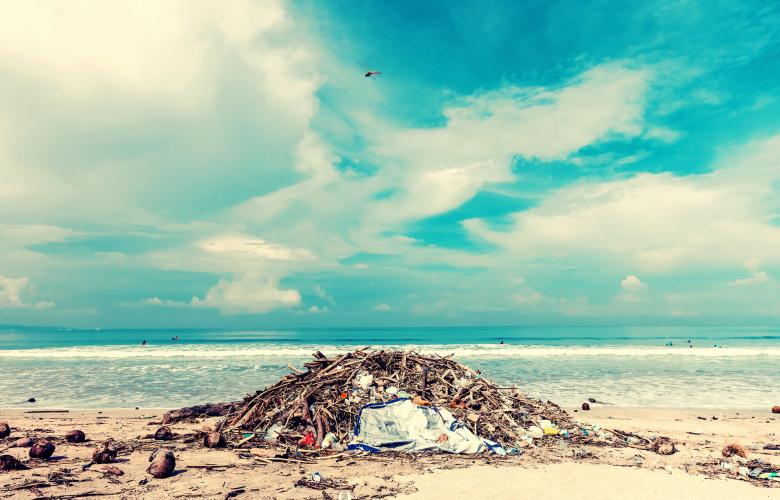On January 1, 2019, Rai Mantra, the Mayor of Denpasar announced Bali's capital would ban single-use plastic bags in supermarkets, convenience stores and shopping centres. Now, six-months later, the ban has been officially extended across the island under something called Pergub Bali No. 97/2018 to include everyone from modern retailers to traditional markets in cities, towns and villages.
Bye Bye Plastic Bags
According to a recent article published by Gapura Bali, much of the credit for Bali's war against single-use plastics "has to go to Melati and Isabel Wijsen, the sisters responsible for the Bye-Bye Plastic Bags (BBPB) campaign in Bali" and their team of dedicated souls who have been on the front-line for a plastic free Bali for over five years, but the movement is global in scale.
The Seminyak Times, reporting on data released by System IQ, claim the Bali Partnership, in collaboration with Governor Koster’s Waste Management Task Force, the provincial Environmental Agency (DLH) and the Norwegian Ministry of Foreign Affairs, have been working "on a comprehensive plan to end plastic pollution from the island" in support of "Indonesia’s National Action Plan on Marine Plastic Debris, a commitment to reduce ocean plastics by 70-percent by 2025."
Efficiently managing waste
According to their report "just over 48-percent of waste generated in Bali is managed responsibly, either through recycling or landfill, while the rest is burned or pollutes land, waterways and the ocean. As a result, 33,000-tons of Bali’s plastic waste ends up in the ocean each year."
For visitors and locals alike, the horrifying proof of this has been afflicting Bali's most popular beaches in recent years, something, which prompted the local government to declare a 'Garbage Emergency' in 2017.
The impact tourism has on Bali is a double-edged sword. On the one hand the tourism industry is the lifeblood of the island's economy while on the other, tourists produce more than three-times the amount of trash than local residents on a daily basis. Education and awareness are key factors in addressing the problem.
Sustainable and eco-travel trends
The tourism industry is usually quick to identify market trends and the issue of single-use plastics is one that has gained momentum in recent years, evidenced by more and more people travelling to destinations where positive environmental efforts are being made.
 The local government declare a 'Garbage Emergency' in 2017. Image by Artem Beliaikin on Pexels.
The local government declare a 'Garbage Emergency' in 2017. Image by Artem Beliaikin on Pexels.
Booking.com's Global Travelers Report for 2019 has found 55-percent of global travelers are more determined to make sustainable travel choices and 72-percent believe people need to act now and make sustainable travel choices to save the planet for future generations.
The latest ban in Bali is already being welcomed by some of the island's leading international and local hotel brands. What's New Indonesia spoke with The Westin Resort, Renaissance Bali Uluwatu, The Stones Legian and Padma Hotels who have been implementing environmentally friendly and sustainable initiatives and they welcome the latest island-wide ban.
Can Bali be a model for the world?
These and other properties have been conducting regular cleanup campaigns bringing "tourists, volunteer groups, hotels and local authorities," together say Singapore's The Straits Times, with the intention to create a model the rest of the world will follow. According to The Seminyak Times "more than 400-community, private-sector, government and cultural and religious organizations are active in cleanups, education, waste collection and recycling."
The Straits Times goes on to quote Ida Bagus Mandhara Brasika from the Bali Governor’s Waste Management Task Force as saying “what happens in Bali will always be noticed by the world. In Bali we are now at the right moment to stop our ocean leakage … we’ll start from Bali and the impact will be global.”
Significant support from the Norwegian government will go a long way to achieving this. Local newswires are reporting Bjørnar Dahl Hotvedt, Norway's Charge d’Affaires to Indonesia as suggesting "contributing to local solutions and working closely with local leadership in Indonesia, with the aim of ending the global challenge of ocean plastics, is a priority for the Norwegian government.”
Bali's trash at a glance
The results of the report from the Waste Management Task Force, the Provincial Environmental Agency (DLH) and the Norwegian Ministry of Foreign Affairs found:
- Bali generates about 1.6-million tonnes of waste each year.
- Around 303,000-tonnes of that waste is plastic.
- Some 33,000-tonnes of plastic waste leaks into Bali’s waterways every year.
- Indonesian and international tourists generate more than three times the waste of Bali's residents.
- Bali has 10-official landfills, which handle around 48-percent of the island's waste.
- Only around 7-percent of Bali’s plastic waste is collected for recycling
- Bali residents are ready for change. 87-percent are willing to sort waste and are ready to make the effort to reduce, reuse and recycle.
Sources: Bye, Bye Plastic Bags, Gapura Bali, The Seminyak Times, System IQ, What's New Indonesia, Bali Bisnis, The Straits Times, Booking.com
Similar to this:
Is Bali's political will turning green?
Plans afoot to charge tourists for waste management
Kicking the habit: How is Bali coping with no plastic bags?



 The local government declare a 'Garbage Emergency' in 2017. Image by Artem Beliaikin on Pexels.
The local government declare a 'Garbage Emergency' in 2017. Image by Artem Beliaikin on Pexels.


